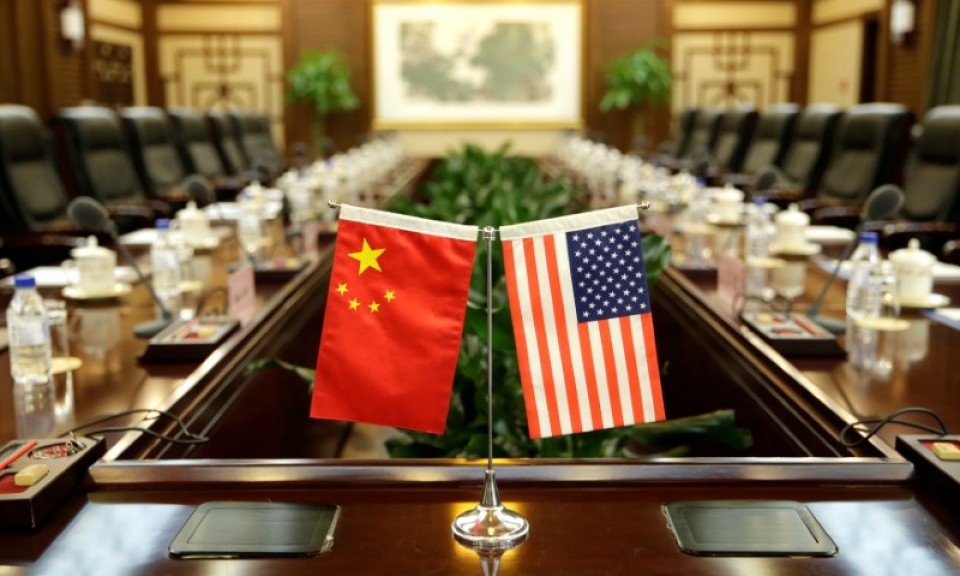Media Report

- Reuters reports, "China has made proposals in talks with the United States on a range of issues that go further than it has before, including on forced technology transfer, as the two sides work to overcome obstacles to a deal to end their protracted trade war, U.S. officials told Reuters on Wednesday. U.S. President Donald Trump imposed tariffs on $250 billion of Chinese imports last year in a move to force China to change the way it does business with the rest of the world and to pry open more of China's economy to U.S. companies. Among Trump's demands are for Beijing to end practices that Washington alleges result in the systematic theft of U.S. intellectual property and the forced transfer of American technology to Chinese companies. U.S. companies say they are often pressured into handing over the technological know-how behind their products to Chinese joint venture partners, local officials or Chinese regulators as a condition for doing business in China. The U.S. government says that technology is often subsequently transferred to and used by Chinese competitors."
- Bloomberg reports, "One month after an aging Indian Air Force jet was shot down in a dogfight with neighboring Pakistan, New Delhi has demonstrated a new weapons capability aimed at another, more powerful geopolitical rival: China. On Wednesday, Prime Minister Narendra Modi used a national address to announce India had 'established itself as a space power' by sending an indigenously designed ballistic-missile interceptor up 300 kilometers (190 miles) to destroy a satellite orbiting the Earth. The move -- with political overtones just weeks ahead of a national election -- sends a stark message to India's nuclear-armed rivals, China and Pakistan, and changes Asia's strategic calculus by proving India has the ability to knock out enemy satellites.The development suggests India, which has long struggled with a lethargic military-procurement process and outdated defense technology, is getting closer to sitting alongside China, Russia and the U.S. as countries with the ability to disrupt enemy communications networks."
- The Washington Post reports, "Taiwanese President Tsai Ing-wen said her government has asked to purchase advanced new fighter jets and tanks from the U.S., a request that if approved, could set off new tensions between the U.S. and China. Beijing considers self-governing Taiwan part of China, to be annexed by force if necessary. Speaking during a visit to Hawaii on Wednesday, Tsai said requests have been submitted for F-16V fighters and M1 Abrams tanks. The new weaponry would 'greatly enhance our land and air capabilities, strengthen military morale, and show to the world the U.S. commitment to Taiwan's defense,' Tsai said. The U.S. is Taiwan's main supplier of defensive weapons, despite the lack of formal diplomatic ties. The F-16V is the most advanced version of the plane that already forms the backbone of Taiwan's air forces, while the M1 Abrams would mark a significant upgrade from the aging, refurbished models the army now uses."
Calendar
- 2019-03-27 China Expels Former Interpol Chief From Communist Party for ‘Extravagant’ Spending
- 2019-03-26 As Europe Wrestles With How to Handle China, Xi Suggests: Trust Me
- 2019-03-25 U.S. Navy, Coast Guard ships pass through strategic Taiwan Strait
- 2019-03-24 US Vessels Sail Through Taiwan Strait, Defying China
- 2019-03-22 Trump Administration Strikes Tougher Stance Ahead of China Talks
- 2019-03-21 EU leaders to discuss stronger shield against Chinese influence
- 2019-03-20 US-China trade talks to resume after pause, US official says
- 2019-03-19 Trump Administration Proposes $86 Billion Spy Budget to Take On Russia and China
- 2019-03-18 Xi to Visit Europe in Bid to Offset Concerns, Boost Trade
- 2019-03-17 Trade Fight With China Enters Overtime, With Tariffs a Costly Sticking Point
News
- Reuters China shifts position on tech transfers, trade talks progress - U.S. officials
- Bloomberg India's Satellite-Destroying Missile Sends Message to China
- The Washington Post Taiwan's Tsai confirms request to buy new US fighters, tanks
- Reuters China pledges to expand financial market opening as U.S trade delegation arrives
- CNBC Countries should not be 'duped' into borrowing from China, expert says
- Bloomberg The Future Is Female in China's Wealth Management Industry
- The Washington Post US to China: Don't steal trade secrets the way we used to do
- Bloomberg Trump Says He Met With Google's Pichai, Talked Military and 'Political Fairness'
- Reuters Sony to close smartphone plant in China to cut costs
- The Washington Post China plans multinational fleet review marking navy founding
- The New York Times Grindr Is Owned by a Chinese Firm, and the U.S. Is Trying to Force It to Sell
- The Washington Post The Deadly African Virus That's Killing China's Pigs
- The New York Times 19th-Century 'Humiliation' Haunts China-U.S. Trade Talks
- Bloomberg The World's Greatest Delivery Empire
- TIME China Censored the Gay Scenes From Bohemian Rhapsod
Commentary
- Bloomberg China Tech Bulls Pick Battles That Even Giants Can't Win
- CNN No matter what trade deal is struck, the US and China are worlds apart. Huawei is the proof
- Bloomberg Huawei Is More Vulnerable to Hacks Than We Thought
- The Wall Street Journal China Ethnically Cleanses Its Uighur Culture
- The Hill China is choosing a different approach to stimulus — is the world ready?
- Financial Times EU must show unity in its relations with China